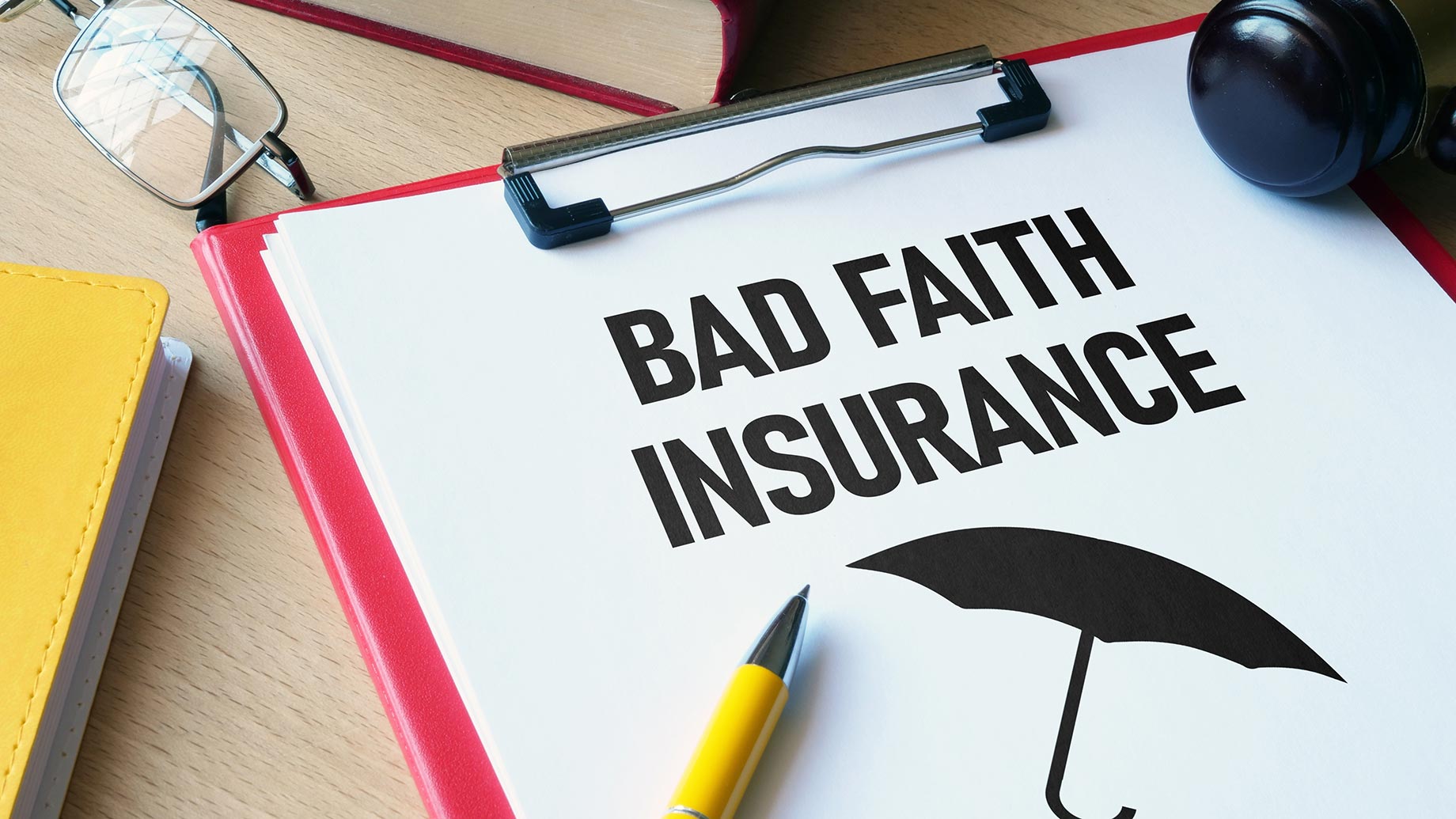
For many people, dealing with an insurance company in the aftermath of an accident can be a significant source of stress. There will be claim exhaustive forms to fill out and submit.
An adjustor will be assigned who will conduct their own investigation. While this is going on, you have mounting bills for medical expenses and car repairs that require reimbursement. It is no wonder that dealing with and waiting for answers from an insurance company can create anxiety.
The situation only worsens when the insurance company acts in bad faith.
When you purchase any type of insurance policy, you are expected to be honest. That honesty starts with the details of your application and extends to any claim you might make. But what happens if you meet your obligations, but the insurance company falls short?
Bad faith is a legal concept that describes an insurance carrier’s unreasonable or dishonest approach to processing a claim.
What Are Common Types of Insurance Bad Faith?
An insurance company is in business to make money. They maintain their profits by minimizing the number of claims they pay out. That is where the potential for bad faith comes into play. Here are some common types of insurance bad faith:
Unreasonable Denial of a Claim
There are two options for a claim: approval or denial. If you receive a letter simply stating your claim has been denied without a legitimate reason, that is an example of bad faith.
Unreasonable Payment Delay
For an insurance company, paying out a claim is considered a “loss.” The company might want to delay that payment into another financial quarter to boost its bottom line. That payment delay is another example of bad faith.
Failure to Investigate
With all the potential surveillance footage available from traffic cameras, dashcams, cell phones, and security cameras, it is possible that there will be a substantial amount of viable evidence for an accident. You and your attorney can gather all that evidence.
Still, if the insurance adjuster doesn’t bother looking into the evidence or perform a basic investigation, they are acting in bad faith.
Asking for Unnecessary Documentation
There will be forms to fill out for any claim. However, an insurance company should not demand unnecessary documentation to delay the process. They might also ask for this documentation to discourage you from moving forward.
Offering a Lowball Settlement
The compensation that you’re entitled to for a personal injury claim should cover your current and future expenses in addition to your pain and suffering. An insurance carrier could offer a settlement that is significantly less than what you’re asking for.
They hope that you’ll accept the lowball offer to settle the claim. That is unfair.
Misrepresenting Policy Terms
An insurance policy can be filled with legalese that is often hard to comprehend without a law degree.
An insurance company can take advantage of that by intentionally misinterpreting those terms. In other words, they may tell you one thing about what you’re entitled to, which is much lower than what the policy allows for.
Refusal to Settle
Negotiating with an insurance company is all about compromise. You may be willing to accept a settlement that is not all that you feel you’re entitled to. Unfortunately, there could be instances where the insurance company refuses to settle for any amount.
When your claim is legitimate, that refusal is acting in bad faith.
What Is the Difference Between First-Party and Third-Party Bad Faith Claims?
Insurance bad faith can occur as a first-party or third-party claim. First-party would refer to you having issues with your insurance company. For instance, you might have an uninsured or underinsured motorist policy to protect you if you get into an accident with someone who doesn’t have insurance.
This would also apply to a hit-and-run accident. If your insurance carrier refuses to pay the claim or denies it, that could be actionable.
In a third-party claim, you are seeking compensation from the insurance company of the at-fault party. In that scenario, the insurance company could try to shift blame for the accident to you or accept the policyholder’s version of the accident without reviewing the evidence.
That would also be an actionable bad faith claim.
You Have Options
If it can be proven that an insurance company has acted in bad faith in handling your claim, you could be entitled to the original amount of the claim plus additional funds as a form of punitive damages.
That’s why you shouldn’t let an insurance company off the hook if they’ve acted in bad faith, as they’re supposed to operate that way. Fortunately, there are skilled attorneys who handle bad faith claims.
You owe it to yourself to get what you’re due.